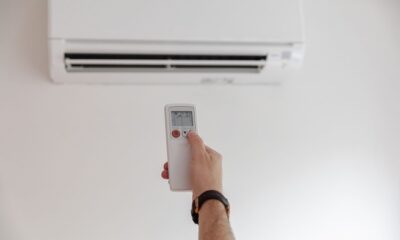Auto
Essential Factors to Consider Before Buying a Used Vehicle

Whether you’re shopping at a dealership or a private seller, thoroughly inspect the vehicle and check for a history report. It can tell you much about the car’s past, including its service and maintenance records.
A vehicle history can also give you a clue as to how reliable the car may be on the road.
Safety
Safety is one of the most essential factors in car shopping. This includes the vehicle’s overall safety rating and its specific safety features. Luckily, many used vehicles now have standard features such as front airbags and active head restraints. Other safety features include a rearview camera and blind spot monitoring.
A Certified Pre-Owned vehicle is another option that provides extra protection when purchasing a used car. CPO cars typically have low mileage, and factory-trained mechanics often inspect them before they’re sold. Plus, they’re backed by a manufacturer’s warranty. Discover a wide selection of pre-owned vehicles in Ottawa, offering exciting car deals and promotions.
However, when shopping for a CPO car, it’s important to understand the program’s requirements and what is and isn’t covered. It’s also a good idea to ask for a multipoint inspection from an independent shop before purchasing. This will help you avoid hidden expenses and unexpected repairs.
Reliability
The reliability of a car can be an important factor when shopping for one. Cars with high reliability tend to keep their resale value longer, making them more attractive to buyers. Reliability also helps reduce product warranty expenses for the manufacturer and the customer. Reliability is a measurement of the consistency of a test or research findings. For example, a reliable thermometer would measure the same temperature each time it’s used. A reliable math test should produce the same results for each person.
Fuel economy
A vehicle’s fuel economy is the distance it travels on a gasoline volume. This measurement is usually expressed in gallons per mile (MPG) rather than the customary miles per gallon. The actual MPG of a vehicle may vary significantly from the number shown on its window sticker, depending on driving conditions and habits. For example, frequent braking wastes fuel by converting the chemical energy in the fuel to kinetic energy that is dissipated as heat. Also, cold weather can make a vehicle’s engine less efficient. Many believe a vehicle’s MPG degrades over time, but this is not necessarily true. As long as a vehicle is regularly serviced and well-maintained, it should return the same MPG as when it was new.
Value
The right used vehicle will save you money, thanks to less depreciation and lower insurance rates. It’s important to consider all of your options, including how you plan on using the car and whether you’ll need to pay for add-ons at the dealership.
You might also want to consider Certified Pre-Owned vehicles (CPO), lease-return cars that meet manufacturer standards for condition and are backed by warranties similar to new-car warranties. Many of these cars are priced close to or even cheaper than a comparable new model. Lastly, it’s always worth asking about a vehicle’s history and getting an inspection. Look for any dents, scratches, or rust on the exterior, which can tell you something about how a previous owner treated it.















You must be logged in to post a comment Login